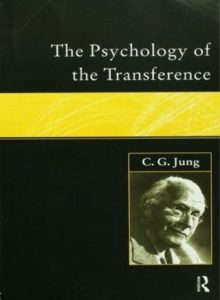
- This event has passed.
Seminar on The Psychology of the Transference
September 15, 2023 @ 9:00 am - December 8, 2023 @ 9:00 am EDT
$14.00 – $250.00 FOR LICENSED CLINICIANS
FOR LICENSED CLINICIANS
DATES: Sept. 15, 29; Oct. 13, 27; Nov. 10, 24; Dec. 8. (2023) – 2 hours each session
Time: 9am to 11am for each session
REGISTRATION FEE: $250 REGISTRATION LIMITED TO 12 PARTICIPANTS
CEUs: Based on number of sessions and hours each; thus 14 are available. CEUs are $2 for JACO members and $15 for non-members
LOCATION: May be by Zoom or in-person or both. To be determined. If in person will be at First Community 1320 Cambridge Blvd., Columbus 43212
TEXT: Nathan Schwartz-Salant (1998). The Mystery of Human Relationship: Achemy and the Transformation of the Self.
FACILITATOR: Dr. Jim Fidelibus
For two personalities to meet is like mixing two different chemical substances: if there is any combination at all, both are transformed. (CW 16, par. 163)
Jung was inspired to write about the transference at the age of 71 after encountering the woodcut images that accompany the alchemical text, the Rosarium Philosophorum. The discovery of this text brought home a connection between the psychology of the transference and Jung’s extensive study of alchemy. It became his model for framing a way of relating to transference phenomena that amplified relational patterns in archetypal terms.
Jung had been introduced to alchemy in 1928 by the missionary-sinologist Richard Wilhelm. For Jung, the connection with Wilhelm was utterly transformative. In the years immediately following his break with Freud, Jung had a set of psychic experiences now known as his “confrontation with the unconscious.” Analytical psychology was developed as he wrestled with an understanding of these experiences in the context of gnostic philosophy and cross-cultural mythology. His insights led him to regard his experiences as psychic processes rooted in the archetypes of the collective unconscious. But it was not until Jung read Wilhelm’s German translation of the ancient Chinese text, The Secret of the Golden Flower, that he took any real confidence in his conclusions. Jung found in this text a metaphor so compellingly descriptive of his psychic experience that he dropped his work on The Red Book. He was propelled into decades of exhaustive study of alchemy that ultimately resulted in the addition of three massive tomes to the Collected Works: Psychology and Alchemy (vol. 12), Alchemical Studies (vol. 13), and Mysterium Coniunctionis (vol. 14). In addition to these, among the many fruits of this labor and of particular relevance to this seminar was his 1945 essay, The Psychology of the Transference.
This seminar offers an opportunity to reflect from the perspective of Jung’s alchemical metaphor on our shared experience as clinicians in handling the dynamics of therapeutic interaction. Jung says, “In any effective psychological treatment the doctor is bound to influence the patient; but this influence can only take place if the patient has a reciprocal influence on the doctor. You can exert no influence if you are not susceptible to influence” (CW 16, par. 163). The hope it that, as we consider transference and countertransference from our experience as clinicians and in the light of assigned readings, we will create a learning environment of mutual “susceptibility to influence” that will stretch and grow us clinically.
Learning objectives:
- Participants will recognize and evaluate assumptions they have made historically in their clinical work with respect to transference and countertransference dynamics.
- Participants will Identify new trends and/or insights that have affected their clinical work in some novel way.
- Participants will be able to contrast examples of developmental and archetypal transferences from their clinical work and the way their differential approach to each has evolved over the course of their participation.
- Participants will be able to express both consonances/agreements and dissonances/disagreements with authors’ theoretical understanding of how to understand and to work with countertransference.
| Schwartz-Salant, N. (1998). The Mystery of Human Relationship: Alchemy and the Transformation of the Self. NY: Routledge.
|
|
| 1
9/15 |
Ch. 1 Alchemy and transformation in human relationship
pgs. 1 – 18 Ch. 2 Activating the experience of the field pgs. 19 – 35
|
| 2
9/29 |
Ch. 4 The dynamics of the interactive field
pgs. 63 – 97
|
| 3
10/13 |
Ch. 5 The transformative power of the interactive field
pgs. 80 – 97 Ch. 6 The alchemical view of madness pgs. 98 – 124
|
| 4
10/27 |
Ch. 7 The central mystery of the alchemical process
pgs. 125 – 149
|
| 5
11/10 |
Ch. 8 The alchemical attitude toward the transformation of relationship
pgs. 150 – 174
|
| 6
11/24
|
Ch. 9 Union, death, and the resurrection of the self
pgs. 175 – 215
|
| 7
12/8 |
Ch. 10 Approaching the mystery of relationship
pgs. 216 – 229
|
